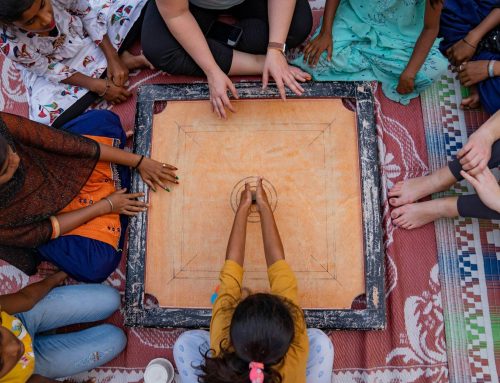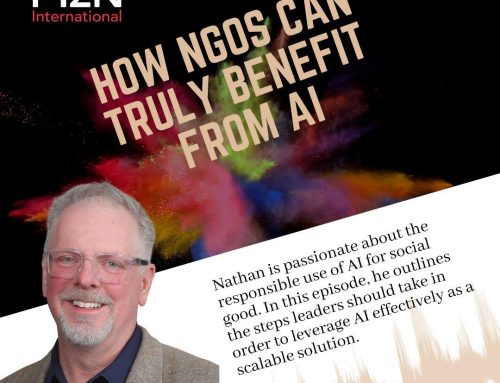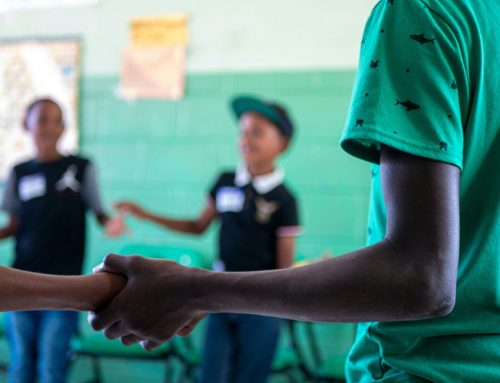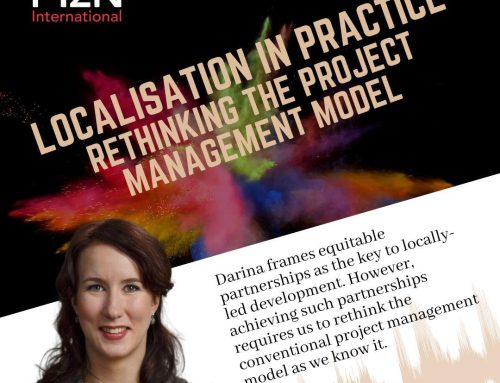How USAID plan to “confront the greatest challenges of our time, embrace new partnerships, & invest in USAID’s enduring effectiveness”.

USAID has provided emergency support to many countries following natural disasters. Here, volunteers work alongside locals to help Haiti recover post earthquake. Credit: Kendra Helmer, USAID.
USAID has launched a new Policy Framework: Driving Progress Beyond Programs, aimed at tackling global challenges through collective action and deep partnerships. The policy guidelines were unveiled during a meeting with Administrator Samantha Power and USAID officials, establishing this strategy as a “ commitment to building a more free, peaceful, prosperous, and humane world”.
Key Takeaways
The strategy seeks to address five global challenges: responding to complex emergencies, helping countries with the effects of climate change, counter corruption and spur democratic renewal, reverse the decline in global life expectancy and finally, promote economic growth. These challenges have been compounded by economic turmoil, with 60% of the world’s poorest countries at near debt distress.
The roadmap is designed to inform not just what USAID works on, but also how it works. The agency is committed to evidence-based policies and programs and will work with a diverse set of partners, including interagency partners, private sector and foundation partners, and local organizations. USAID is also committed to making necessary investments in its people and processes to achieve its objectives.
USAID places emphasis on the importance of the localisation agenda, which is already being put into action. It was noted that the framework’s priorities are complementary to the national security strategy and will show how USAID fits into the overall national security and foreign policy goals of the US. The need to increase coherence with interagency partners and spur change to reach further than before was stressed.
Administrator Samantha Power reflected on the policy framework and what it means for USAID’s work. She noted that the five global challenges are connected and require collective action. She also emphasized the need for deep partnerships to address the challenges and highlighted the role of the private sector and local organizations in achieving sustainable gains. Power also discussed the need to address the changing ecosystem of the INGO community and communicate effectively against misinformation.
The second chapter of the policy framework outlines new partnerships that USAID needs to embrace. The agency is committed to elevating the practice of development diplomacy and engaging multilateral institutions, development banks, regional bodies, partner governments, and interagency counterparts to achieve its objectives. USAID will also work more often with organizations based in partner countries to ensure that work is truly locally-led.
The policy framework includes a focus on global health, highlighting the impact of COVID-19 on primary healthcare systems. The agency is targeting recovery of global life expectancy by 2025 and has partnered with the World Bank to build frontline primary healthcare capacity.
In short
The launch of the new policy framework demonstrates USAID’s commitment to addressing global challenges through collective action and deep partnerships. The agency is committed to evidence-based policies and programs and is investing in its people and processes to achieve its objectives. With the challenges facing the world today, the framework provides a guide to inform and spur change to achieve sustainable gains.
Read the new Policy Framework here.




